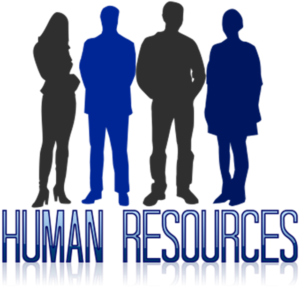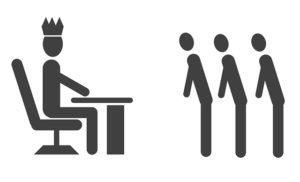Functions of Human Resource Management (HRM)
- Managerial functions, and
- Operative functions
1. Managerial Functions
Managing people is the heart and essence of being a manager. Personnel manager is a manager and as such he must perform the basic functions of management like planning, organising, directing and controlling.(Functions of Human Resource Management)

Planning :- It is a pre-determined course of action. Planning is the determination of the plans, strategies, programmes, policies and procedures to accomplish the desired organisational objectives. For HRM, planning involves estimation of human resource requirements, recruitment, selection, training etc. It also involves formulation of personnel policies and programmes, forecasting personnel needs, and preparing the human resource budget etc.
Organising :- After plans have been developed, the HRM must establish an organisation to carry
them out. This function involves grouping of personnel activities, assignment of tasks to different
individuals and teams, delegation of authority and establishment of authority-responsibility relationship and integrating their activities towards the organisational objectives

Directing :- This function involves motivating, guiding, leading and activating the personnel. Human
resource manager must inculcate in the workers a keen appreciation of the enterprise policies.
The willing and effective cooperation of employees for the attainment of organisational goals is
possible through motivation and command.(Functions of Human Resource Management)
Controlling :- It involves checking, measuring, verifying, correcting and assuring the accomplishment of plans. Auditing training programmes, analysing labour turnover records, directing morale surveys are some of the means to assure the human resource management that the activities are being carried out in accordance with the plans.(Functions of Human Resource Management)
2. Operative Functions
The operative or service functions of human resource management are related to specific activities of
procuring, developing, compensating and maintaining an efficient work force.

Procurement :- It is the first operative function of human resource management. Procurement is
concerned with securing and employing the right kind of people in the right number on a right job at
a right time to achieve the organisational objectives. It consists of the functions such as job analysis,
human resource planning, recruitment, selection, placement, induction and internal mobility.
Development :- It is concerned with the personnel development of employees by improving the knowledge, skills, aptitudes, attitudes and values of employees to make them more competent
and effective on their present and future jobs. This function includes(Functions of Human Resource Management)
Performance appraisal, Potential appraisal, Performance counselling, Training and management
development, Career planning and Development, Organisation development.
Compensation :- It is the process of providing equitable and fair remuneration to the employees.
This function includes: Job evaluation, Wage and Salary administration, Incentives, Bonus etc.

Integration :- It is concerned with the attempt to bring about a reasonable reconciliation of individual
and organisational interests. It involves: Negotiations with labour unions, handling employees’ grievances, developing sound human relations, establishing good relations with government agencies
and educational institutions, workers’ participation in management, employees’ discipline etc.
Maintenance :- It is concerned with sustaining and protecting the physical and mental health of employees in the organisation. It includes several types of benefits such as housing, medical services, educational facilities, social security measures like provident fund, pension, gratuity, maternity benefits, health and safety measures, group insurance etc.
Records, Research and Audit :- Personnel department maintains the records of the employees working in the organisation. Record-keeping is necessary both for exercising control over personnel activities and for doing research. This function involves: developing a good system of record keeping, carrying out research on various subjects and annual personnel audit.